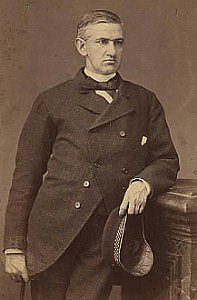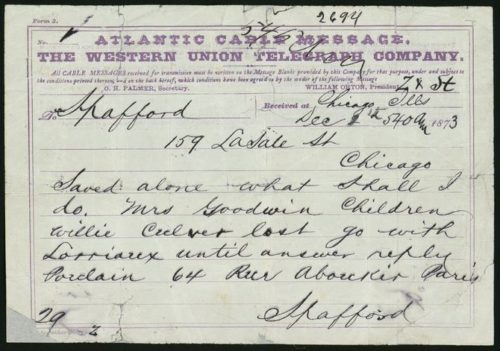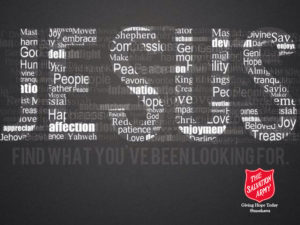When peace like a river attendeth my way,
When sorrows like sea billows roll,
Whatever my lot, Thou hast taught me to know
It is well, it is well with my soul.
It is well with my soul,
It is well, it is well with my soul.
Though Satan should buffet, though trials should come,
Let this blest assurance control:
That Christ hath regarded my helpless estate
And hath shed His own blood for my soul.
For me be it Christ, be it Christ hence to live;
If Jordan above me shall roll,
No pang shall be mine, for in death as in life
Thou wilt whisper Thy peace to my soul.
But Lord, ’tis for Thee, for Thy coming we wait;
The sky, not the grave, is our goal;
O trump of the angel! O voice of the Lord!
Blessèd hope, blessèd rest of my soul!
 Likely many readers here are familiar with the basic story behind this well-known old hymn, but it bears repeating because of the inspiring faith of the author, Horatio Spafford. Perhaps some of the facts given may be new, as well.
Likely many readers here are familiar with the basic story behind this well-known old hymn, but it bears repeating because of the inspiring faith of the author, Horatio Spafford. Perhaps some of the facts given may be new, as well.
Spafford was born in 1828. He grew up in New York and moved to Chicago in 1856 to work as a lawyer and a professor at Lind University, which became Chicago Medical College. He was a Sunday School teacher, a YMCA worker and a trustee and director of a Presbyterian Theological Seminary. In the Chicago fire of 1871, he lost a considerable amount of his business properties.
In 1873 Spafford planned a trip to Europe for his family, particularly to help his wife’s health. Last-minute real estate business caused Horatio to stay behind, but his wife, Anna, and their four daughters set sail on the Ville du Havre .  In mid-Atlantic, their ship was rammed by a British ship, the Lochearn , and sank in twelve minutes! For Salvationists, this is reminiscent of the sinking of the Empress of Ireland ! The four daughters perished, but Anna was rescued. From the UK, she sent a telegram to her husband, reading “Saved alone.”
In mid-Atlantic, their ship was rammed by a British ship, the Lochearn , and sank in twelve minutes! For Salvationists, this is reminiscent of the sinking of the Empress of Ireland ! The four daughters perished, but Anna was rescued. From the UK, she sent a telegram to her husband, reading “Saved alone.”  Horatio set out across the Atlantic to join his wife, and it is said that he wrote the song above when he reached the area in which his daughters had drowned. The couple later had three more children, but their son died of scarlet fever as a three-year-old. So much tragedy for this family!
Horatio set out across the Atlantic to join his wife, and it is said that he wrote the song above when he reached the area in which his daughters had drowned. The couple later had three more children, but their son died of scarlet fever as a three-year-old. So much tragedy for this family!
The Spaffords continued living in Chicago until 1881, when they moved to Jerusalem and set up a philanthropic community there. By this point they had withdrawn from the Presbyterian Church and had set up their own faith-based group, which had been meeting in their Chicago home. Some controversy began over the family and their followers – “The Overcomers”. Among other non-conventional ideas, they believed that the return of Jesus was imminent and would occur in Jerusalem. While living there, they did not proselytize, but became respected by Jews, Muslims and Christians in the area. In spite of this controversy, Spafford’s hymn survived to encourage many to hold onto their Christian faith, no matter what trials might befall them here on earth. Horatio Spafford died in 1888 of malaria, and was buried in Jerusalem.
Spafford’s hymn survived to encourage many to hold onto their Christian faith, no matter what trials might befall them here on earth. Share on XWORDS: HORATIO G. SPAFFORD; MUSIC: PHILLIP BLISS
S.A. SONG BOOK, 1987 EDITION, #771; 2015 EDITION, #741
REFERENCES: UMCDISCIPLESHIP.ORG; WIKIPEDIA








